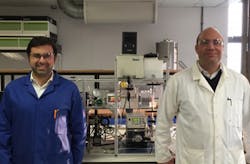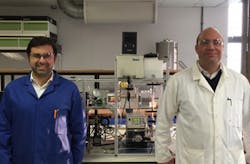U.K. researchers have received funding to develop advanced membranes that can be used to separate water from particles such as pharmaceuticals or pollutants.
The University of Bath announced on that Dr. Darrell Patterson and Dr. Davide Mattia, from its Department of Chemical Engineering, have been awarded a £1 million ($1.5 million) Engineering and Physical Sciences Research Council (EPSRC) grant.
They will join a collaborative project involving six U.K. universities, supported by EPSRC funding that amounts to £6 million ($8.8 million) over five years.
The project aims to develop the next generation of long lasting "immortal membranes" to improve membrane performance in energy, manufacturing, water and the pharmaceutical industry. As the University of Bath noted, in these four industries membranes have the potential to, and in some cases already do, provide a lower energy alternative to existing separation technology, requiring significantly smaller capital costs.
There are good reasons why membranes are not yet widely used for some applications. Operating costs can be high because membranes need periodic cleaning and eventually have to be replaced when they lose permeability and/or selectivity. This is caused by aging of the membrane material or a build-up of unwanted material on the surface of the membrane.
The researchers taking part in the project will investigate different aspects of membrane development.
For example, at the University of Bath, Dr. Patterson will look at how to produce membranes on a large scale using 3D printing technology, while Dr. Mattia will focus on creating novel hybrid membranes that combine the best features of organic membranes with those of ceramic membranes.

